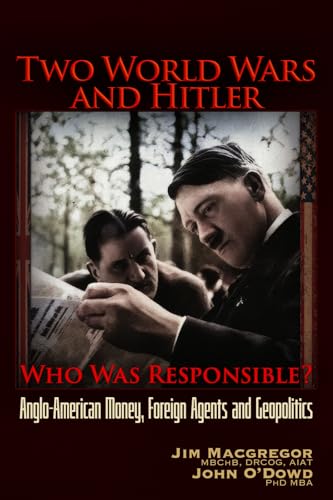
The Illusion Of Victory
by Thomas Fleming
"America In World War I"
Popularity
4.57 / 5
* A book's popularity is determined by how it compares to all other books on this website.
Where to buy?
Buy from Amazon* If you buy this book through the link above, we may receive a small commission at no extra cost to you.
The Illusion Of Victory by Thomas Fleming
Details
War:
World War I
Perspective:
Researcher
True Story:
Yes
Biography:
No
Region:
North America
Page Count:
576
Published Date:
2008
ISBN13:
9780786724987
Description
Main Themes and Topics
The Illusion Of Victory by Thomas Fleming explores the tumultuous political landscape of the United States during World War I. Central to the narrative is the complex figure of Woodrow Wilson, whose presidency is marked by a series of contradictions. The book delves into Wilson's internal conflict as he reluctantly leads the nation into war, aware of the ramifications this decision would have on American society and its values. Fleming discusses the suppression of freedom of speech and the rise of nationalist propaganda fueled by war-time hysteria. The story is a tragic portrayal of an idealist president whose lofty dreams are dashed by political maneuvers and international diplomacy failures, highlighting issues such as the Treaty of Versailles and its repercussions, which echo in subsequent historical events. The book is an examination of progressive politics being sidelined during wartime, and the subsequent social and geopolitical consequences.
Writing Style and Tone
Thomas Fleming employs a narrative style that is both engaging and informative, weaving together historical details with vivid portraits of key figures and events. His tone is analytical yet accessible, making complex political and historical contexts understandable to a broad audience. Fleming has the ability to humanize historical figures such as Woodrow Wilson, presenting them in a nuanced light that reflects their personal and political struggles. The book is meticulously researched, as is characteristic of Fleming's work, offering readers a compelling and comprehensive view of the era.
Criticism
While The Illusion Of Victory is widely regarded for its thorough research and engaging narrative, some critics point out that Fleming's portrayal of Woodrow Wilson may occasionally verge on being overly critical. There are discussions around whether the book places too much blame on Wilson for the failures of the League of Nations and the outcomes of the Treaty of Versailles. Some readers feel that while his presidency is central to the narrative, the complexity and involvement of other contemporary political figures and global circumstances could have been explored in greater depth to provide a more balanced perspective.
Brief Summary (no spoilers)
The Illusion Of Victory examines the political and social upheaval in America during World War I, focusing on President Woodrow Wilson's challenges. It recounts how Wilson's aspirations for peace and a progressive America were compromised as the nation plunged into war. The book traverses his presidency, highlighting the paradoxical nature of his governance, from rallying the nation into the war to his eventual struggle with the League of Nations. Fleming provides an insightful analysis of how Wilson's policies and the subsequent Treaty of Versailles set the stage for future global conflicts. This narrative unravels a poignant period in American history, marked by idealism tempered by the harsh realities of international diplomacy and domestic politics.









